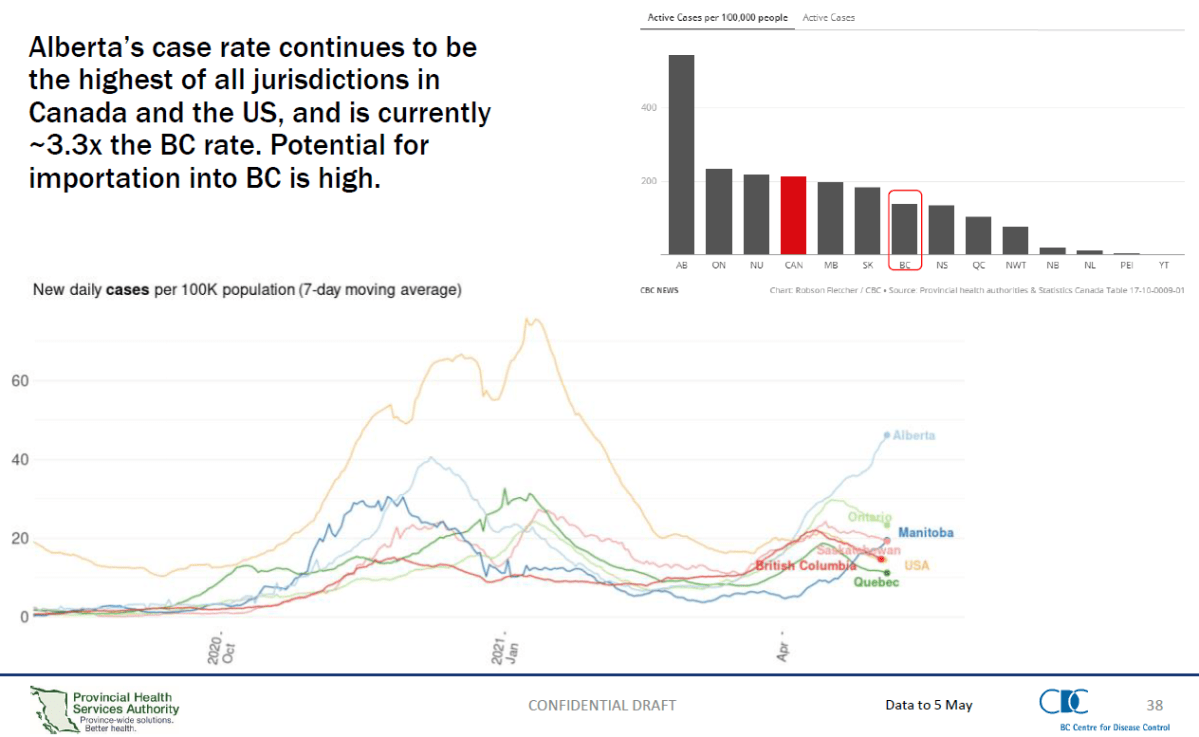B.C.’s government is facing renewed questions about travel restrictions at the Alberta border, amid the release of a B.C. Centre for Disease Control report warning of a high-risk of COVID-19 transmission from the neighboring province.

The May 6 BC CDC report notes that Alberta’s case rate was 3.3 times B.C.’s, and the highest in any jurisdiction in Canada or the U.S.
“Potential for importation into B.C. is high,” it states.
B.C. has implemented COVID-19 travel restrictions, but only on highways leading in and out of the Lower Mainland.
Signs have been posted at the Alberta border warning against non-essential travel, but no enforcement is in place.
“Why is there one set of rules for travelling around for non-essential travel in British Columbia for British Columbians, and nothing but a highway sign at the Alberta border?” BC Liberal house leader Peter Milobar asked.

According to the province, inter-provincial travel contributes to only one per cent of COVID-19 cases.

Get weekly health news
“We monitor that situation, we make our decisions based on the advice of the provincial health officer,” Public Safety Minister Mike Farnworth said.
B.C. Premier John Horgan has previously stated the province has legal advice that it can’t prevent people from travelling to B.C. outright.
Many other provinces have set up inter-provincial checkpoints, designed to enforce bans on non-essential travel.
Mayors in communities near the Alberta-B.C. border have expressed concern that additional checks would be labour-intensive and slow down the essential travel taking place.
And at least anecdotally, some say the amount of non-essential travel appears to be low.
“There haven’t been as many recreational vehicles coming across the border, and so we’re hoping people have taken heed of the warnings given by the provincial gov’t not to come for recreational travel,” Sparwood mayor David Wilks said.
“Of course, we haven’t hit the long weekend yet, so that will be hard to say.”











Comments
Want to discuss? Please read our Commenting Policy first.